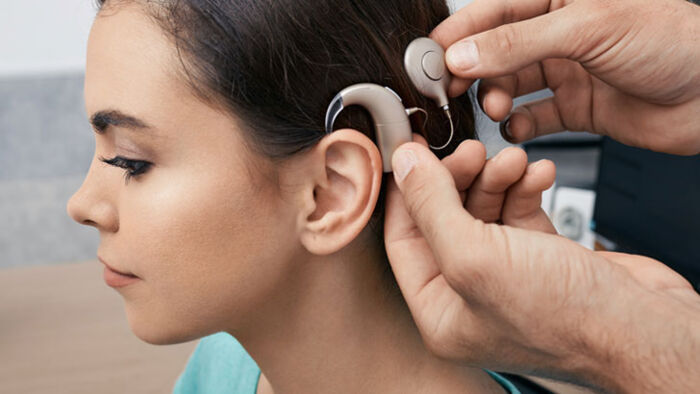Should you buy, hold or sell Cochlear Limited shares?
By Toby Bellingham
Cochlear Limited is an Australian medical device company that researches, develops and markets implantable hearing solutions for children and adults. Established in 1981, it listed on the Australian Stock Exchange in 1995 and now has a market capitalisation of $15 billion.
Cochlear is a truly global company, having sold more than 650,000 implant devices in over 180 countries. The company is a global leader in implantable hearing solutions and benefits from a geographically diverse revenue model, with representation in the Americas (48%), EMEA (Europe, Middle East, Africa - 35%), and Asia Pacific (%).
Business segments
Cochlear's business segments are all related to the sale and servicing of hearing implants which differ from hearing aids because they are surgically implanted.
Implant sales form the majority of revenue for the company (61%), and are comprised of an internal component (surgically implanted) and an external sound component, helping clients with moderate to profound hearing loss.
Services - accounting for 29% of sales - include upgrades (usually every five years) and accessories, spares and repairs. This segment provides Cochlear with a recurring revenue stream which benefits as the installed base of implants increases.
Acoustics (10% of total sales) involve the sale of bone conduction implants and acoustic implants which are designed to assist specific types of hearing loss such as single-sided, inner or outer hearing loss.
Strategy
Hearing aids are used in 95% of cases for severe or higher hearing loss. The other 5% is treated using implants for which Cochlear has a 60% market share. The growth opportunity for Cochlear is therefore huge if it can further penetrate the hearing aid market.
Cochlear's strategy is to retain market leadership in the implant segment by investing in research and development (R&D) to maintain its technological advantage, while supporting new products and offerings.
In addition to this, growing the overall implant market and increasing awareness of the benefits of implants over hearing aids is a major focus. There is a significant addressable market for Cochlear to tap into, with over 60 million people suffering severe hearing loss globally.
Recognition of the quality-of-life improvements and cost-effectiveness of implants by governments who subsidise, and also health professionals who are able to recommend the product, is a key focus.
Returns
Over the past 10 years, Cochlear has achieved an impressive annual return of 19% (compared to 12% for the ASX200, when reinvesting the dividends). Capital returns, or share price increases, have historically formed the bulk of returns, with approximately 30% coming from dividends.
Cochlear currently yields just over 1%, a relatively small dividend due to the fact the company is still reinvesting much of its profit into the business to fund future growth. Cochlear does not pay any franking credits as the vast majority of its profits are made offshore and are not subject to Australian tax.
COVID-19 has had a disruptive effect on Cochlear's earnings which were materially down in 2020 due to delays in elective surgeries, especially in European and emerging markets. Earnings have recovered in 2021 but are still behind pre-pandemic levels.
ESG considerations
Cochlear scores well on our Environmental, Social and Governance ratings frameworks, particularly in categories such as product responsibility, employment quality and health and safety. Its board structure is well diversified and management compensation is in line with global peers.
From an environmental perspective, Cochlear has a low carbon footprint with business travel contributing most of its carbon emissions. It is especially encouraging to see the company taking on board the learnings from the pandemic and continuing to conduct business remotely to target a 50% reduction in business flight emissions by 2025.
As such, we currently rate Cochlear as a sell. The company is a high-quality business and enjoys a leading position in its industry.
However, the stock is expensive, usually commanding a high price-to-earnings ratio in the 40s due to its high growth and quality prospects (Cochlear is currently trading on a PE of 54 times next year's earnings).
Cochlear's ability to maintain sales momentum during the pandemic was inhibited, with elective surgeries put on hold due to resourcing issues in the healthcare sector. The 8% loss in sales translated to a 33% loss in EBITDA.
In addition, the volatility in its accruals over the pandemic period is concerning. Recent revenue growth on face value looks promising but is really only a function of a rebound from depressed sales in 2020.
As the current pandemic situation continues to evolve, the risk of disruptions to business as usual and the possibility of new strains are ever-present. A higher valuation than before the pandemic is therefore hard to justify.
Get stories like this in our newsletters.



